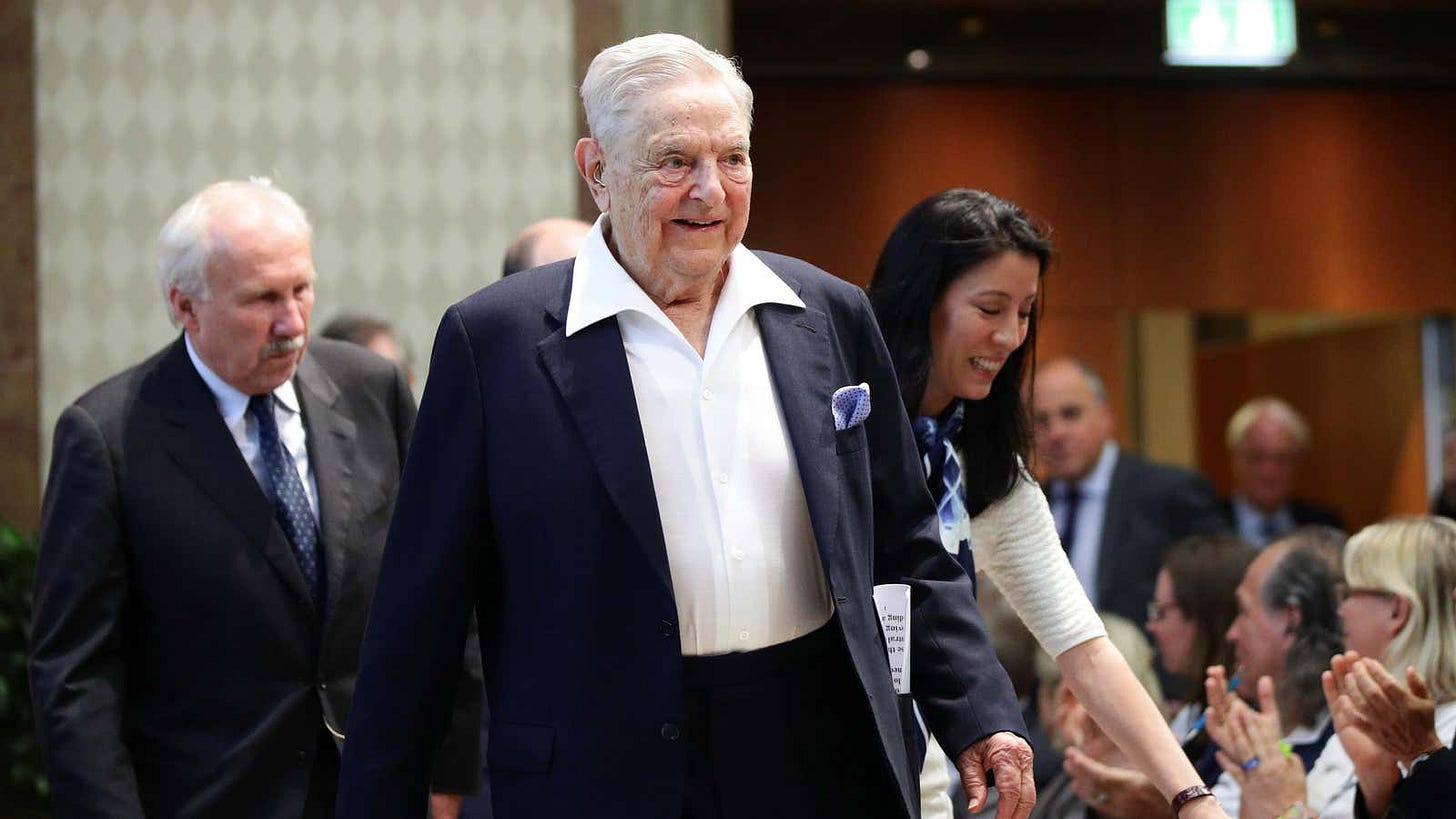Warren Buffett and George Soros: Navigating Turbulent Financial Waters and Political Undercurrents
George Soros's “Open Society Foundations” is Often Blamed for Destabilizing Governments that Don't Accommodate His Financial and Ideological Interests.
The Journeys of Buffett and Soros
They are both 93 years old, August-born billionaires, US citizens, and astute guardians of their expansive business interests – yet, that's precisely where the similarities between Warren Buffett and George Soros end. Buffett, known as the “Sage of Omaha,” has built his wealth through a steadfast approach, favoring long-term investment in value-producing companies. Soros, on the other hand, has earned his moniker as the ultimate speculator, with a keen eye for sharp, strategic plays in the market. These two financial titans stand as polar beacons in the investment world: Buffett's wealth accumulation embodies a methodical marathon, while Soros’ resembles a tactical sprint. Both have cultivated legacies that go beyond mere wealth, capturing the imagination of investors worldwide who seek to unravel the enigma of their fiscal success. The narrative of their financial journeys presents a compelling dichotomy, emblematic of the diverse paths one can traverse in the tumultuous seas of wealth generation.
Buffett's Billion-Dollar Blueprint
Warren Buffett, the Chairman and CEO of Berkshire Hathaway, started his journey in the financial markets at an early age. With an initial focus on honing the principles of value investing — a strategy he adopted from his mentor Benjamin Graham — Buffett's acumen for picking stocks destined for long-term success became legendary. Known for investing in companies with strong economic moats like Coca-Cola and Apple, he turned Berkshire Hathaway from a failing textile company into a behemoth with holdings that span across various sectors, including insurance, energy, transportation, and consumer goods. As of the latest data, Buffett's net worth hovers around the $100 billion mark, a testament to his patient and steady approach to wealth accumulation.
Soros's Speculative Saga
On the other side of the spectrum, George Soros, the Hungarian-born investor, made his fortune by being right where others feared to tread. His claim to fame — or infamy, in some circles — was the bold bet against the British Pound in 1992, a maneuver that earned him a profit of $1 billion in a single day and garnered him the nickname "The Man Who Broke the Bank of England." His speculative approach has often focused on short-term gains through high-stakes plays in currency and commodity markets. Through his Quantum Fund, Soros has seen his net worth grow to over $8 billion, even after donating more than $32 billion to his philanthropic agency, the Open Society Foundations.

Investment Philosophies and Life Choices
Warren Buffett and George Soros, titans of investment, have wielded their financial acumen to not only navigate but also shape the economic landscape. Their distinct strategies illuminate the varied paths to financial greatness.
Buffett's Enduring Approach: Value Over Volume
Buffett's investment strategy is akin to a long-term courtship with the market. He advocates for an approach that prioritizes business fundamentals and intrinsic value, eschewing the frenetic pace of speculative trading. His portfolio is a reflection of this philosophy, where blue-chip companies reside like cherished heirlooms, chosen for their ability to withstand economic tempests. This methodical approach to investing has not only defined his journey but also imparted a unique stability to Berkshire Hathaway's growth, inspiring countless investors to adopt his measured, thoughtful investment style.
Soros's Strategic Manoeuvres: Agility in Action
In contrast, Soros's financial journey is marked by a series of strategic, often short-term positions that reflect his belief in the 'reflexivity' of markets — the idea that market participants' biases and actions can influence market outcomes. Soros's speculative strategies have sometimes led to dramatic financial coups, most notably in currency markets, where his moves have at times precipitated national economic adjustments. His tactical agility and willingness to engage in complex, high-risk maneuvers have earned him both admiration and criticism in the financial world.
Contrasting Lifestyles and Philanthropic Ventures
Warren Buffett's personal ethos of simplicity resonates deeply with his investment style. His residence in Omaha, Nebraska — a modest abode by billionaire standards — and his public aversion to ostentatious displays of wealth reflect a life oriented around principles rather than possessions. His philanthropic efforts, notably the Giving Pledge, which he co-founded with Bill and Melinda Gates, encourage the wealthy to commit a significant portion of their wealth to charitable causes.
George Soros's approach to wealth and philanthropy weaves a complex narrative within the global socio-political milieu. His “Open Society Foundations”, ostensibly champions of democratic principles, human rights advocacy, and social reform, reflecting Soros's deep-seated resilience against authoritarianism. Yet, his efforts frequently stir the cauldron of controversy; notably, the recent furore in India involving 'Access Now', a beneficiary of his foundations, linked to an Apple security breach alert. Amidst such tumult, Soros often remains an enigmatic silence, fuelling the fervour of both critics and conjecture. It’s this propensity for polarisation that leads to sharp critiques, with some accusing him of employing questionable tactics to amass wealth—a stark contrast to the more staid investment style of Warren Buffett. One trenchant critic, a dear friend who promoted me to write on this subject, remarked, "He has made money as a predator, not as an investor like Buffett," encapsulating the contention that while Buffett’s path to prosperity is viewed as methodical and value-driven, Soros is often seen as the archetypal maverick, shaping his fortune through more mercurial means.
Synthesizing Success: A Comparative Conclusion
The narratives of Warren Buffett and George Soros offer profound insights into the nature of financial success and the responsibilities it engenders. Buffett's journey underscores the value of patience, consistency, and a focus on intrinsic value. In contrast, Soros's path exemplifies the impact of strategic agility and a willingness to engage with global complexities. Both have redefined the art of investing, though their legacies will resonate in markedly different ways with future generations.
Their contrasting approaches to living and giving paint a fuller picture of how success is not only achieved but also shared. Buffett's and Soros's lives remind us that the paths to financial and philanthropic impact are as diverse as the individuals who walk them, each marked by a distinct set of choices and consequences. The mosaic of their achievements offers not a singular lesson but a spectrum of strategies for those aspiring to leave their own mark on the world of finance and beyond.





